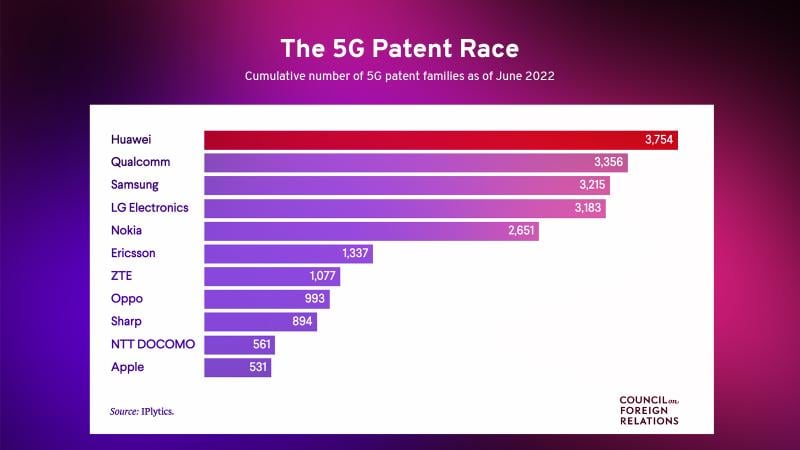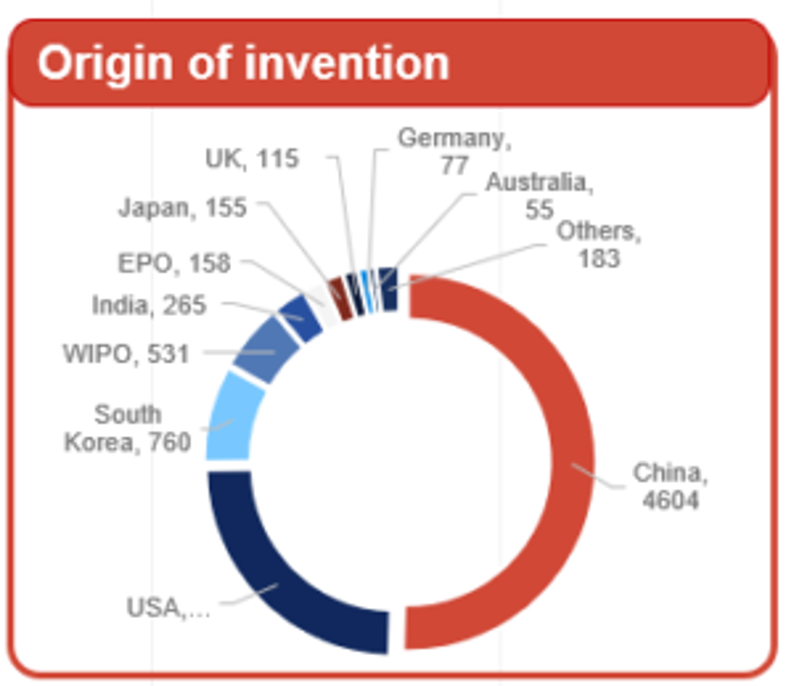Users won’t be able to enjoy the benefits of 6G wireless technology until the end of the decade at the very earliest, but the battle for control over the successor to 5G cellular technology has already started.
The fight is taking place behind the scenes at the R&D facilities of telecom vendors around the world who are vying to develop the essential pieces of the 6G solution – and patent them.
These patents are important. A quirk of the telecom industry is its unique, time-honored patent-sharing system, which allows companies to get paid in return for allowing their competitors to use their technology. The more patents a company owns, the more money it makes.
More than that, the patent holders ultimately control how mobile tech is used around the world.
With stakes this high it’s not surprising major vendors like Ericsson, Huawei, Intel, Nokia, and Samsung take the patents process extremely seriously (governments and academic institutions also participate in developing patents).
This is especially true of 6G, which promises huge advances over 5G, including speed, (some prognosticators are speculating that speeds of a terabit may be possible) and lower latency. It’s also expected to support a wider variety of cool cloud-based applications such as virtual and augmented reality, including mobile holograms, as well as a wave of new cloud-based IoT services that will sweep through vertical industries. (Samsung previewed some of these at MWC, and they were amazing.)
The 5G patent precedence
How many patents will end up being filed for 6G? That’s not yet clear, but the 5G standard provides some guidance.
You might guess that there are at least 100 patented technologies involved in 5G. And you would be wrong. Add a zero? Still way off. Add two zeros? Nope. If you guessed that the number of 5G patents was, in fact, 141,564 (lucky trickster, shot in the dark!) then congratulations – you win.
In 2022, the European Telecommunications Standards Institutes (ETSI) whittled down that number to a mere 106,013 patents, which still gives a sense of how massively complicated and vast the 5G specification is.
As the chart shows, Huawei won the race to develop the most 5G patents. In June 2022 it had 3,754 patents, versus runner up, Qualcomm, with 3,356.

Sore 5G Losers
The United States Patent and Trademark Office (USPTO), one of the three principal patents authorities in the world, did not take this news well at all, going so far as to issue an unintentionally hilarious report concluding that “no single firm dominates 5G innovation at present,” but inferring that if there was a winner it would be an American company because, “You’re darn tootin’!” And, also, “USA! USA! USA!"
USPTO justified its conclusion using its own made-up methodology, ignoring the total number of patents filed and instead assigning more weight to the patents that it perceived as innovative or valuable or, possibly, that had been filed by companies that watched Yellowstone and care who wins the Super Bowl.
Interestingly, the report came out last year, in February 2022, when USPTO was still run by Andrei Iancu, who was appointed by President Trump, who had previously given a speech saying: “The race to 5G is a race America must win,” and, “We cannot allow any other country to out-compete the United States in this powerful industry of the future.”
But then we didn’t (win) and did (allow ourselves to be out-competed), partly because, as a country, the U.S. doesn’t actually have a full-stack 5G solutions provider. Which is, like, super lame. But also, because, as a company, Huawei reinvests a higher percentage of its revenue on R&D than any other vendor in the world.
So yeah, that.
And the 6G winner will be....
The race to develop 6G patents is already well underway, with 9,000 patents filed as of October 2022, according to Questel, an intellectual property solutions provider based in Paris, France.
Of the new 6G patents, the top 10 largest communications companies in the world own 19% with Intel, Samsung and IBM owning the most.
Does this spell the end of Chinese companies’ lock on cellular tech? Not so fast, Tex — 50% of the 6G patents come from organizations based in China, according to Questel. The U.S. is in second place, and South Korea is third.

Based on the level of patent activity already taking place around 6G, the battle for control of the standard will be yet fiercer than the one for 5G. Hopefully this time the politicians will stay in their lane, in their clown car, and away from the whole thing.
What are your thoughts on the 6G patent wars? Write to us here.

